Phone:
+6011-56331685
Email Address:
theneurofit@gmail.com

Walking is one of the simplest yet most powerful ways to stay active and healthy. But for many, knee pain turns this everyday activity into a painful challenge. Whether you’re dealing with mild discomfort or more severe pain, understanding the cause and taking early action can improve your walking experience—and your quality of life.
1. Osteoarthritis
A degenerative joint condition that causes cartilage breakdown, leading to pain, stiffness, and limited mobility.
Common in: Older adults with osteoporosis, muscle weakness, or weight issues
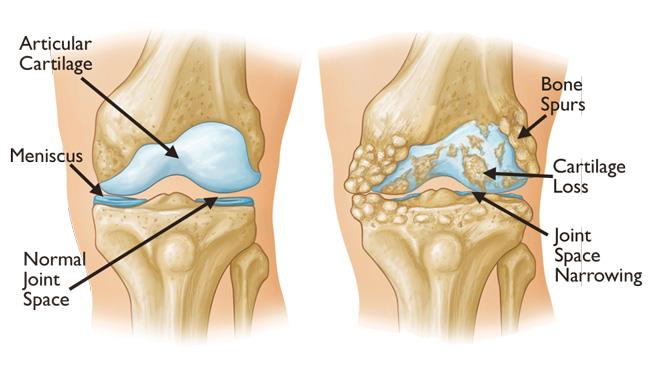
Image From: OrthoInfo American Academy of Orthopaedic Surgeons
2. Bursitis
Inflammation of the bursae—fluid-filled sacs that cushion your knee joints.
Cause: Repetitive motion or prolonged pressure on the knee.
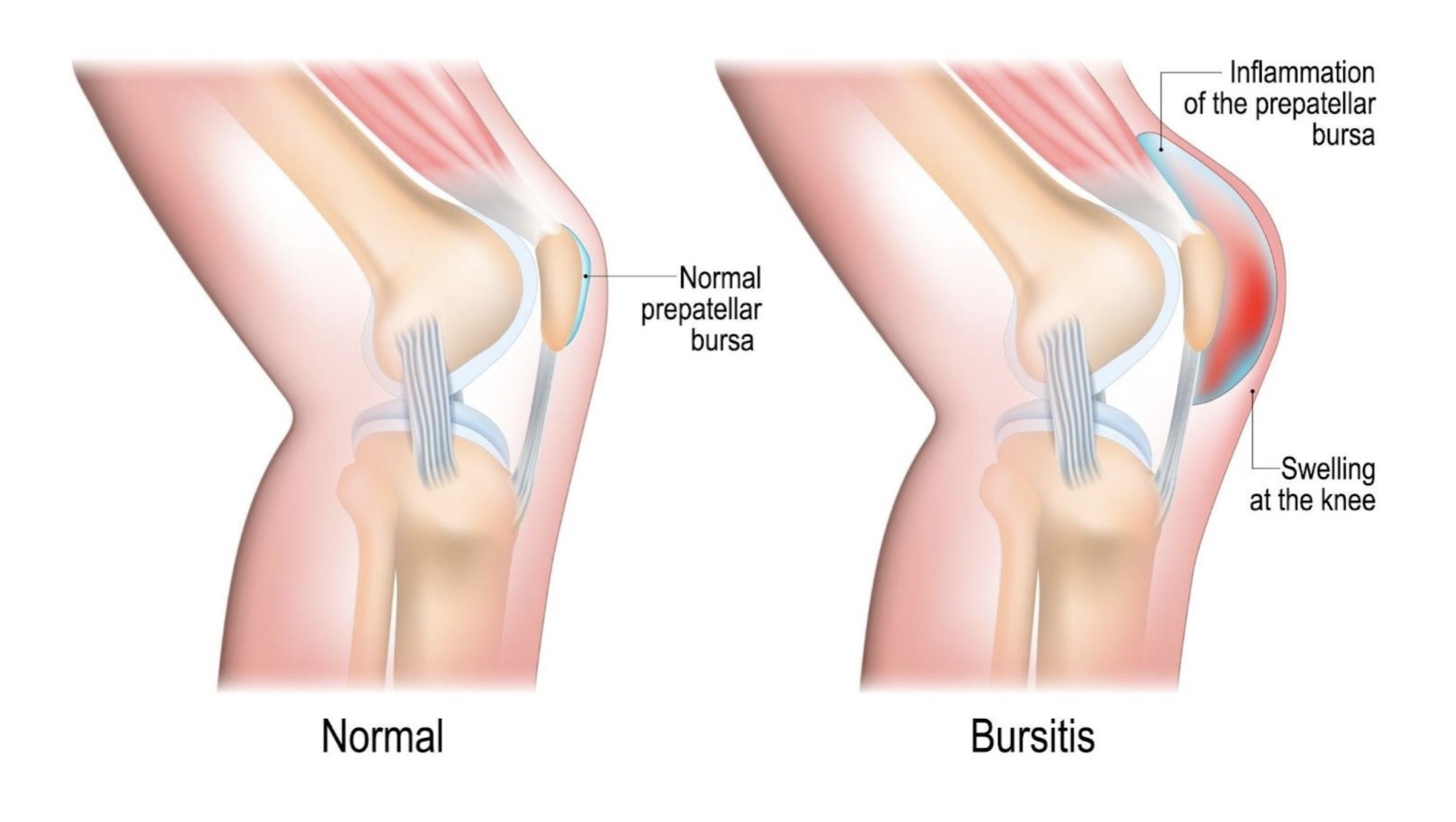
Image From Narayana Health
3. Patellofemoral Pain Syndrome (Runner’s Knee)
Occurs when the cartilage beneath the kneecap is damaged due to overuse or misalignment.
Common in: Runners, cyclists, and athletes doing repetitive knee movements.
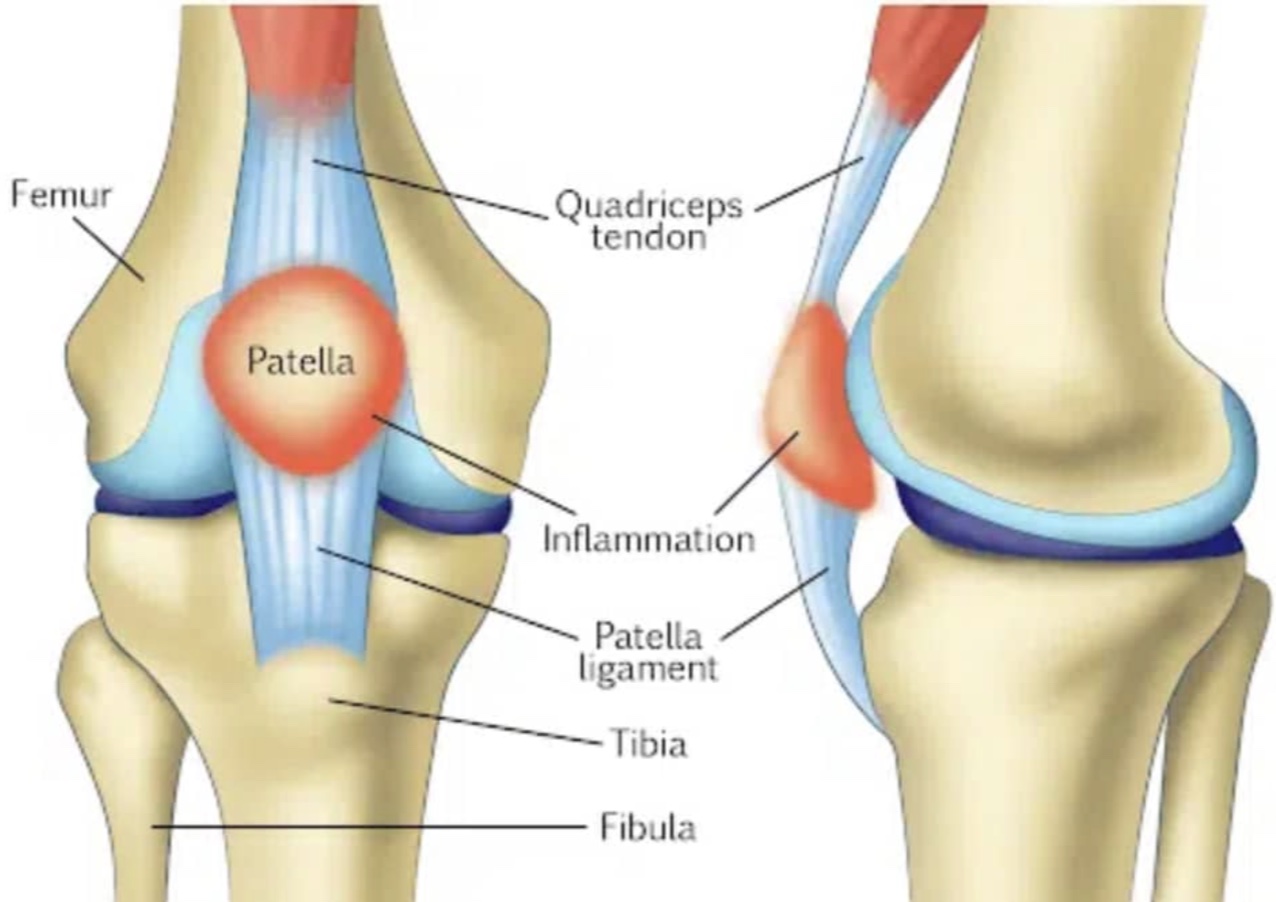
Image From Centeno- Schultz Clinic
4. liotibial Band Syndrome (ITBS)
Inflammation of the IT band, a ligament running down the outer thigh.
Pain Location: Outside of the knee
Common in: Runners and cyclists.
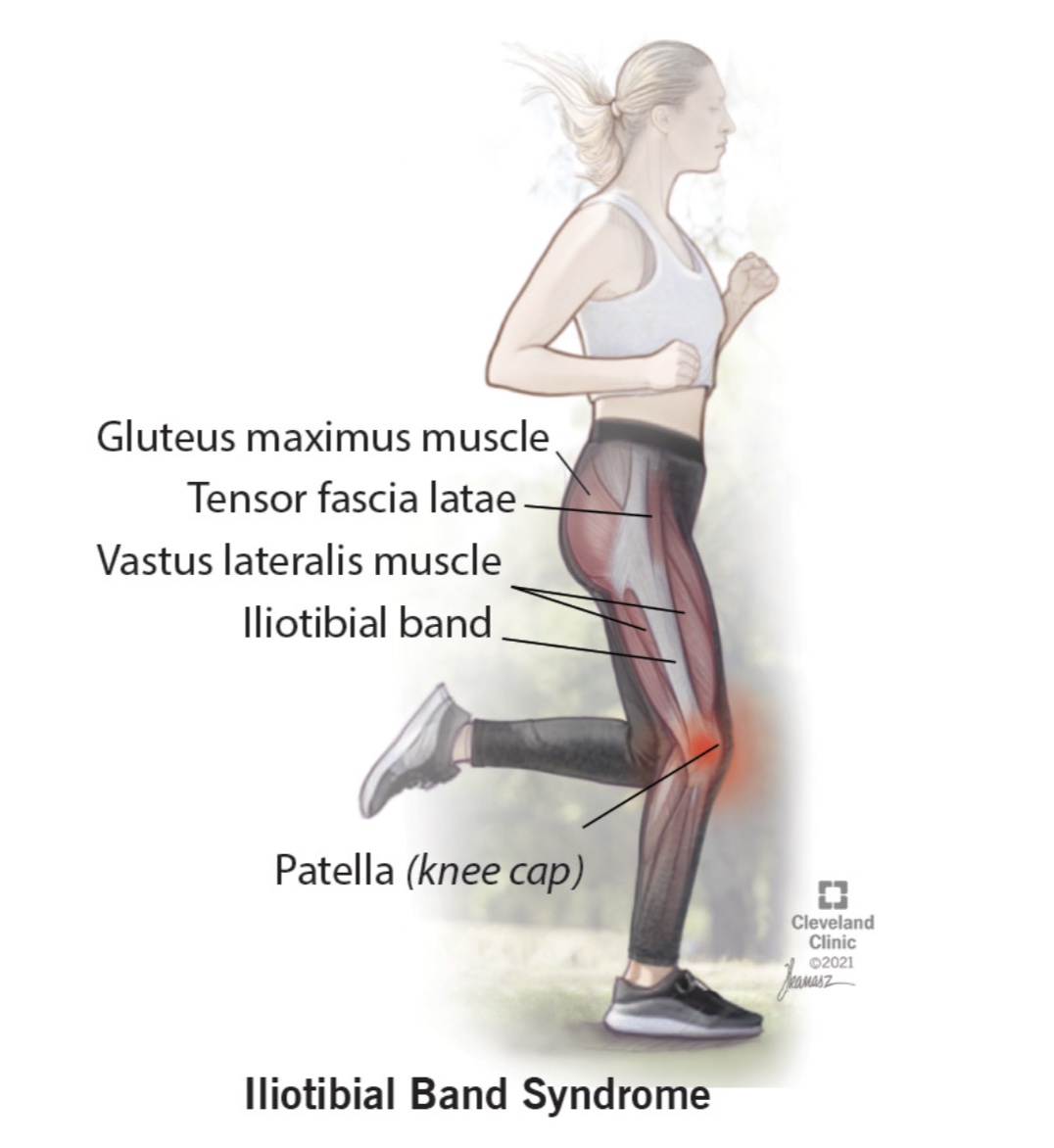
Image From Cleveland Clinic
5. Patella Tendonitis (Jumper knee)
Inflammation of patella tendon caused by repetitive strain or overuse.
Common in: Athletes or anyone doing frequent jumping or squatting.
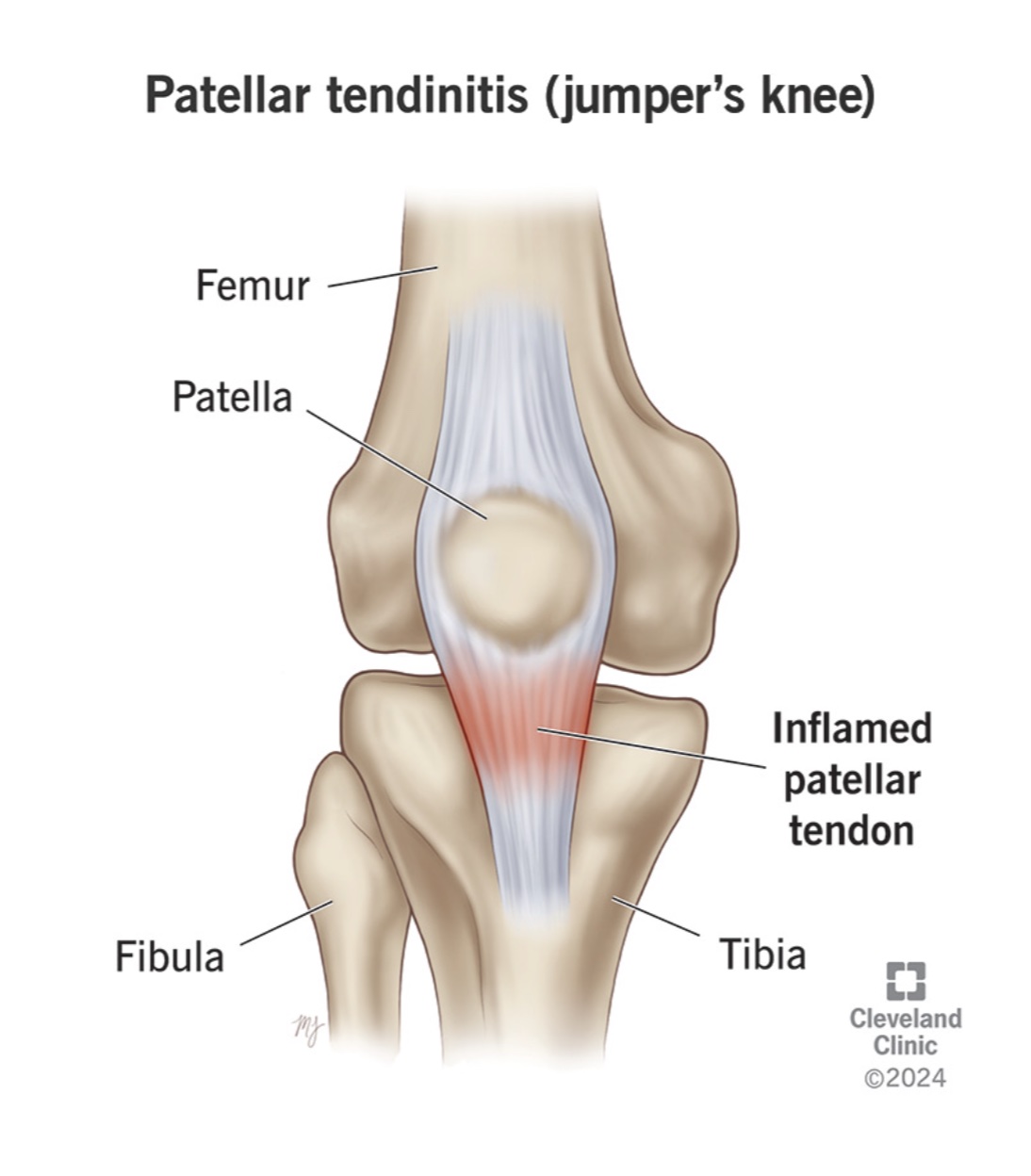
Image From Cleveland Clinic
Treatment should follow different phases depending on pain severity and tissue healing stages.
• Ice Therapy: Apply ice to reduce pain and swelling.
• Rest: Essential to prevent further injury and allow healing.
• Electrotherapy (TENS, IFT) : Apply electric stimulation on the joints or muscle for pain relief.
Gentle Static Stretching to reduce tightness:
• Quadriceps Stretch
• Hamstring Stretch
• Calf Stretch
• IT Band Stretch
Non-weight Bearing Strengthening to reduce strain on the knee:
• Terminal Knee Extension
• Hamstring Curl (lying or seated)
• Bridging
• Seated Calf Raise
• Clamshell
Once pain subsides, progress to bodyweight strengthening:
• Squats
• Deadlifts (light to moderate load)
• Hip Thrusts
• Bulgarian Split Squats
• Standing Calf Raises
Knee pain during walking can result from several causes, depending on age, activity level, and joint health. Identifying the root cause is key to selecting the right treatment. Early physiotherapy intervention—tailored to your pain level and condition—can prevent long-term issues and help you return to pain-free walking.
If pain persists or worsens, consult a physiotherapist or healthcare provider for a proper assessment and personalized rehab plan.